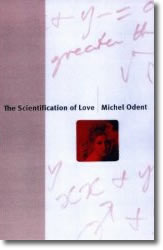The Scientification of Love - Michel Odent

Book Description
Why do all cultures ritually disrupt the first contact between mother and new-born
baby? Why has there hitherto been an evolutionary advantage in developing human
potential for aggression rather than the capacity to love? Until recently love
was the realm of poets, artists and philosophers. Latterly it has been studied
from multiple scientific perspectives. Michel Odent argues that the specialist
approach has overlooked the importance of love as a potential new strategy for
human survival, and that the old survival strategy, the domination of nature
and other human groups, is no longer appropriate. By weaving together data from
a multitude of disciplines, Michel Odent, is able to offer a number of insightful,
and exciting explanations, and makes the case for the adoption of radical new
strategies for human survival.
Great reductions on this book from Amazon!
Reviewer: Frangoise Dr Frangoise Barbira
Freedman Affiliated Lecturer in Medical Anthropology, University
of Cambridge, UK and founder/coordinator of 'Birthligh (UK)
Under a deceptively simple and small format, this is perhaps
the most sophisticated and far-ranging of all Michel Odent's
books until now. It brings together Michel's clinical experience
of uninterfered human birth with his more recent research
on the links between 'primal' experiences - before birth,
around birth and in the first year-, and well being later
on in life, with thought-provoking insights in every single
chapter. While some readers may already be aware of the importance
of oxytocin, the 'hormone of love', and endorphins in all
apsects of human sexuality including lactation, the book
explores their role in a wider concept of love that encompasses
maternal love as prototype of all love and mystical emotions
in altered states of consciousness. A very wide range of
evidence from the biological and other sciences as well as
the humanities is brought together in a logical sequence
of chapters followed by both a summary of each argument and
a list of references. The cross-section of scientific papers
included is impressive and keeps the reader on track to catch
a glimpse of the whole, the 'unbroken mirror' of human behaviour.
From a review of studies of oxytocin receptors in and outside
the brain to the relevance of the disputed 'aquatic ape theory'
and the salience of comparable features in the births of
Buddha and Jesus, there is a concordance which specialist
readers should remain open to. The argument is anything but
a reductionist one; the more extensive our analysis of the
molecular level, -the'scientification' of love-, the greater
our understanding of how malleable the hormonal balance of
humans as social beings can be.
For a long time, Michel Odent has been interested in culture
from the perspective of birth and the handling of infants
around the time of birth. One of the main hypotheses in this
book, -quite a large piece of the mirror-, is that interference
with the birth process can be linked historically with a
long phase of human evolution in which aggressiveness was
adaptive; yet 'homo ecologicus' has everything to gain from
a full dose of love hormones at the start of life. As an
anthropologist who has witnessed in her lifetime the undisturbed
birthing of Amazonian forest people, then the havoc caused
by enforced medicalisation and now the conscious but difficult
revaluing of native ways, I endorse Michel's argument as
the mnessage it also is. His book is an optimist one. It
absolutely relies on reason and knowledge to expose how the
physiological reduction of neocortical control during labour,
-only possible if mothers are secure-, does not only facilitate
the release and action of oxytocin during birth but also
provides a starting point for harnessing the energies of
love heralded by Teilhard de Chardin, in new cultural forms.


